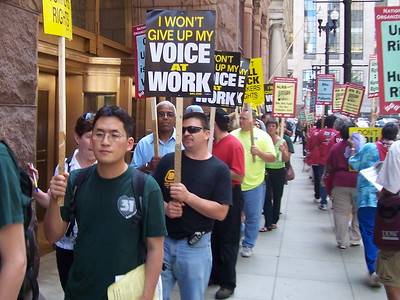The National Labor Relations Board released an interesting new ruling this week regarding the enforceability and legality of non-disclosure agreements and non-disparagement clauses. The McLaren Macomb case, which arises from Macomb County’s McLaren Hospital, involved 11 nurses that McLaren laid off in 2020, in the early stages of the pandemic.
McLaren deemed the nurses to be “nonessential personnel” because they worked in McLaren’s outpatient clinics, which closed in compliance with COVID-19 related government orders. Even though the nurses were part of a union, McLaren did not work through the union to effect the layoffs.
As part of the layoff and not in keeping with the union contract, McLaren provided each of the 11 workers with a cash severance offer. The severance offers included broad non-disclosure agreements and non-disparagement clauses. In other words, the hospital would pay the nurses severance offers contingent on them not disclosing the amount of their severance pay and refraining from disparaging McLaren.
According to the severance agreement, if a signer or his/her attorney later violated either clause, McLaren could seek injunctive relief that included actual damages, costs, and attorneys fees.
McLaren’s approach was based on recent cases, which found that both non-disclosure and non-disparagement clauses were legal and enforceable. In the McLaren case, however, the NLRB overturned those precedents and returned to its previous long-held position that severance agreements that “interfere with, restrain, or coerce employees in the exercise of their Section 7 rights” is unlawful – as are the offers of such agreements by employers.
“Section 7 rights” refer to Section 7 of the National Labor Relations Act. Section 7 reads:
RIGHTS OF EMPLOYEES
Sec. 7. [§ 157.] Employees shall have the right to self-organization, to form, join, or assist labor organizations, to bargain collectively through representatives of their own choosing, and to engage in other concerted activities for the purpose of collective bargaining or other mutual aid or protection, and shall also have the right to refrain from any or all of such activities except to the extent that such right may be affected by an agreement requiring membership in a labor organization as a condition of employment as authorized in section 8(a)(3) [section 158(a)(3) of this title].”
In other words, non-disclosure agreements and non-disparagement agreements impermissibly interfere with an employee’s rights related to union activities under the National Labor Relations Act. As such, these terms cannot be enforced against members of a collective bargaining unit.
Just sayin’…
Photo Credit: Carlos Fernandez , via Flickr









